At the first "Countryside Singing" Festival - 2005 organized by the Farmers' Association of Tay Ninh province, when the Trang Bang District Farmers' Association's Art Troupe participated in the festival, an old man from the audience slowly walked up to the stage, pulled out a chair, opened his dusty bag, took out a plastic bottle of tea, opened a jar of coffee, poured it into a cup, took a sip, and said to the backstage: "Damn you, stand there and wait for me to finish singing and then take me home!".
The whole auditorium of the Provincial Cultural and Artistic Center burst into laughter. Even more “unique”, as soon as he finished speaking, he started singing a song “crying to the heavens” about the “4 reductions” target, the smell was unbearable. At that time, I asked the people in Trang Bang team, I just found out that the old man was 83 years old, commonly known as Mr. Hai Tho. A few years later, I went back to my paternal hometown Loc Hung, asked around and found out that he had passed away.

Mr. Hai Tho in a performance at the "Country Singing" Festival in 2005, when he was 83 years old.
When I was young, reading the story “Self-study to write songs about Him” by author Duy Vu, printed in the book “Tay Ninh people's hearts with Uncle Ho (Tay Ninh Provincial Party Committee's Propaganda Department published in 1990), I learned that Mr. Hai Tho (Nguyen Van Phuoc) was one of the first people to establish the Tay Ninh Performing Arts Troupe.
Later, in a few conversations with Mr. Bay Dung and Mr. Bay Phat, I learned a little more about him. However, because he retired quite early, I knew him, but had never met him. It was not until the "Country Singing" Festival in 2005, when he finished his performance and returned to the audience, that I looked for him and chatted with him. He was old but still very sharp. Listening to Kim Pha - the Go Dau District Farmers' Association's Art Troupe - sing "Nguoi Me Tam Lanh", he nudged me and whispered: "This girl sings so well, if only someone could teach her more, she would be very good in the future!". When the judges announced the results, I was surprised, Kim Pha won first prize in the traditional solo singing category.
Don Thuan people carry bamboo poles to chase "Ngo Dinh Diem"
In the traditional history of the Propaganda sector and stories about the Cultural sector, the Tay Ninh Performing Arts Troupe during the resistance war, the name "Hai Tho" was mentioned over and over again, especially during the period of political struggle, protesting against the US and the puppet government of Ngo Dinh Diem, who carried out a one-sided war, unilaterally tore up the Geneva Agreement, and suppressed former resistance fighters.
Mr. Hai Tho was born in 1922 in Soc Lao hamlet, Don Thuan commune, Trang Bang district (now Trang Bang town). In 1945, he joined the Vanguard Youth. By 1947, he was the Deputy Head of the Information and Propaganda Department of the commune. After the Geneva Agreement in 1954, he did not go to the assembly but decided to stay, secretly participating in propaganda campaigns for the people through organizing music and singing at ceremonies, funerals, weddings, etc. During the time when the Ngo Dinh Diem government issued Law 10/59, dragging the guillotine everywhere, terrorizing the masses, Mr. Hai Tho composed a number of vọng cổ tunes as the basis for the cải lương play “The People Expel the American Empire” or later known as “Sweeping Away the Invading Army”.
According to the memories of Mr. Bay Dung and Mr. Bay Phat, around the end of December 1960, on the occasion of the newly established Front, we organized a welcoming rally in Boi Loi forest, Don Thuan commune, Mr. Hai Binh (aka Nguyen Van Tot, at that time holding the position of Deputy Secretary of the Provincial Party Committee) asked Mr. Hai Tho's singing group to perform a cultural program to serve the people. Mr. Hai Tho staged the play "The whole people expel the American imperialists". On the first night of the performance, more than 10,000 people came to watch, in this play, there were both the characters of Ngo Dinh Diem and the American advisor... the actors acted so well that some people were so angry, hating the enemy's crimes, they picked up bamboo poles to chase "Ngo Dinh Diem" running with the flag.

A dance performance by the Tay Ninh Art Troupe during the resistance war.
Nineteen years ago, having the opportunity to return to my paternal hometown Loc Hung, I ran to Soc Lao to find Mr. Hai Tho's house. In a thatched hut built along the bamboo row next to the main house - which he called "the composer's house", he said: "Back then, they terrorized me so much! I had to go out into the forest to write. I walked backwards, and wherever I went, the forest leaves covered my footprints. After finishing writing, I invited and assigned my art-loving friends to practice some vọng cổ songs (no one knew that it was a "role" in a play I had prepared). In this play, I played two roles, an American advisor and a farmer, a short and stocky guy in the neighborhood played the role of Ngo Dinh Diem and the role of the evil captain."
Those assigned roles by Mr. Hai Tho had to practice the lyrics, the way they walked, the steps… in secret. The funniest thing was the story of the person assigned to play the role of Ngo Dinh Diem and the evil captain. Every day, he took the buffalo out to plow the field, and around 9-10 o'clock he would stop and start practicing. An old neighbor found it strange, took notice and "told" his father: "It seems like your son is possessed by the evil spirit. Every day, after plowing, he would come to the top of the field, arms and legs crossed, face frowning, eyebrows furrowed, and act very majestic. Sometimes when he walked by, he would even mumble. It seems that this evil spirit is fierce, you should quickly bring Mr. Bay back to plow it, it's a pity to wait too long!"
Mr. Hai Tho continued: “The night of the performance at Boi Loi, people from all over the district, people from Ben Cau, then Ben Cat - Song Be flocked over. When Ngo Dinh Diem carried the American advisor I played to the middle of the stage and placed him on the table, the American gave the order: “Vietnam must be pacified within 18 months. Wherever it cannot be pacified, bombs will be dropped to massacre”. I had just finished speaking, and before I could say anything, oh my god, the corn cobs flew up from below the stage. The sound of curses resounded, and I could even hear the sound of guns being loaded.”
After that period, 7 people from the Don Thuan Commune Singing Group (including Mr. Hai Tho, Ba Sen, Sau Minh, Bay Ho, Chin Hiep, Khanh) were assigned by the Tay Ninh Provincial Party Committee to become the core of the Provincial Art Troupe. After the play "Sending off the American Imperialists" was revised by Mr. Bay Dung, the Provincial Art Troupe performed in the liberated areas of Trang Bang, Toa Thanh, Ben Cau, Chau Thanh and Ben Cat districts (formerly Song Be province), contributing to the movement. After each performance, people went together to fight the enemy.
The book “Tradition of the Propaganda Sector, 1945 – 2000” recorded: “In Ben Cat, after watching the performance, the people discussed with each other: “If we fight with reason like in the play, we will definitely win”. And a few days later, thousands of people went to Ben Cat district headquarters to fight. Afterwards, an official of Ben Cat district had the opportunity to meet the Cultural Troupe again and said: Your performance had a great effect. We launched it for months but the result was not as good as your performance in one night”.
During his time as Head of the Art Troupe, Mr. Hai Tho wrote many plays and reformed operas such as: "Old Bamboo Embraces Young Bamboo", "Celebrating Cooperation Day" (reformed opera), "Resistance Potato", "Tradition of Struggle", "Resistance Bamboo Tree"... but unfortunately, most of them were confiscated and destroyed by the enemy after he was ambushed and shot and wounded in 1964 while on his way back from a business trip to Go Dau. He tried to remember some of the later plays to rewrite, but could not complete them.

A performance by the Tay Ninh Art Troupe at Boi Loi Base in 1967.
Artist of the People
In 1968, the war became increasingly fierce, the art troupe withdrew to the base area of Bac Tay Ninh. Due to serious injuries, he could not follow the troupe, so he stayed in Don Thuan to work. After the liberation day, he continued to work in local cultural and artistic activities until 1992, when he was 70 years old, he officially retired.
While sitting with Mr. Hai Tho in the “composer’s house” where he often goes to write plays, reminisce about the past and think about the present and the future, he said: “I really like young people who are knowledgeable and cultured. I am old, and have a lot of life experience, but if there are things I don’t know, I just admit that I don’t know, and then learn from the young people”. Then suddenly he raised his voice to “Crying in the sky”: “We should not abandon our young children/ Veterans must be by our side/ Mothers of heroes, martyrs, and wounded soldiers, remind and help enthusiastically/ Help our children and grandchildren to move forward steadily/ Don’t forget that we are parents/ Even though the young people are talented, they cannot avoid making mistakes/ We have many years of experience…”.
In the past, the medals, certificates of merit, and certificates of achievements in the two resistance wars were carefully kept in an old bag by him. In the small hut, every night he rested his hand on his forehead, pondering over the country and the mountains. Taking a sip of coffee, his eyes misty, he said: “The immediate difficulty that our Party and State must overcome is the problem of corruption. We cannot continue to prevent and fight like this forever, we must eradicate it completely!”
During the subsidy period, he often took the art troupe to perform in this or that commune in the district. But every time he was absent, the night before the performance of the "Sorcerer to Cure Illness" reformed opera, the next day, the commune leaders spoke up to "skillfully chase" him away for fear that people would watch, gather in large numbers, and cause fights (!?). In this reformed opera, there was a rather unique scene where the Sorcerer summoned the spirit of the "distributor" minister to question him: "The distributed goods, gasoline, MSG, fabric, soap, tears, kerosene, were all gone before people could buy them, and were taken to shops and stores, and the black market was flooded. The bulk goods were brought in neatly, hidden, hoarded for speculation, and sold to the people, the policy, martyrs, and war invalids, all of which were buffalo and cow heads. Agriculture was allocated two matchboxes per hectare, and the ash and fertilizer were stored and then shared among themselves...".
Or when the shaman sets up an altar to exorcise ghosts and demons: “I invite the evil hooker, the evil hooker, the evil thief, the evil embezzler. The evil drinker, the evil troublemaker, the evil speaker, the evil person who corrupts the people, the evil person who stands alone, who does not take the people's heart as his root... I invite the evil body, the evil world, the evil reliance, the evil reliance, the evil river, the evil merchant. The evil trader, the evil smuggler, the evil eel, the evil swindler...”. Perhaps because this reformed opera was born at the wrong time, he put it in the basket, opened it up every now and then to read, to remember.
He joined the Elderly Association and wrote many articles on issues such as calling for the whole population to unite to build a cultural life in residential areas, fight against prostitution, drugs, and racing and weaving: “…Gambling and drugging take all the money, then force us to do everything from hired killing to hired stabbing. Absolutely, don’t be greedy for corruption, no amount of money can compare, the most precious thing is the love and affection of the people. Suffering for the people is normal.”
I have also had several years of eating the rice of the “Ancestor of Cai Luong”, among many regrets is that I only heard the news several years after his death. Rewriting the old story is like lighting a stick of incense in my heart – for the Artist of the People.
D.HT
(to be continued)
Source








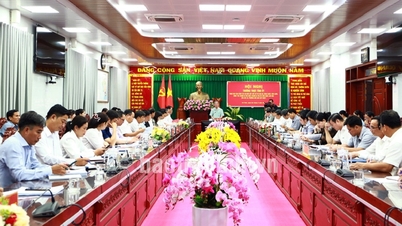
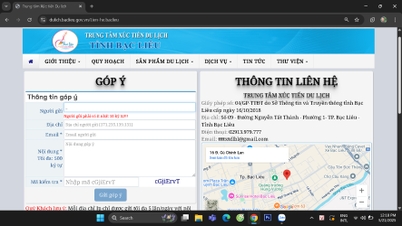
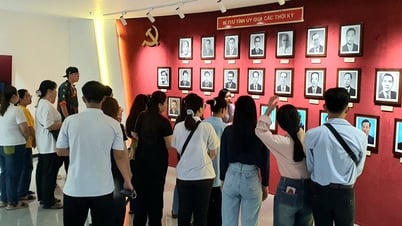

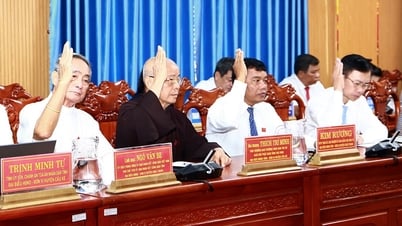







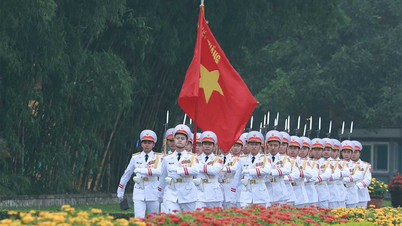




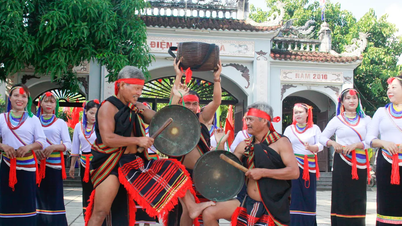

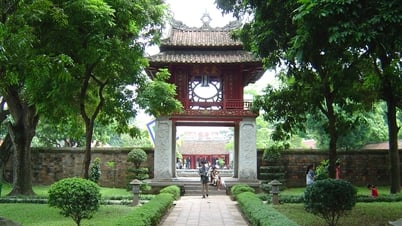

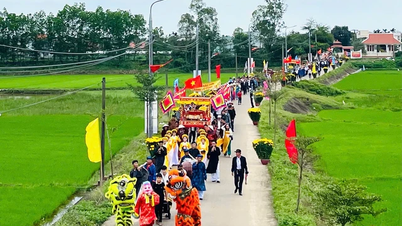









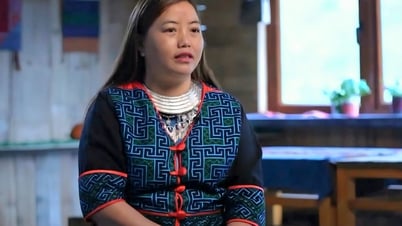

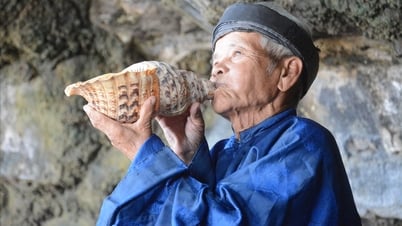












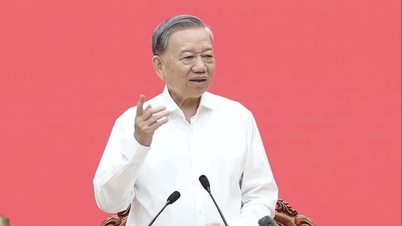







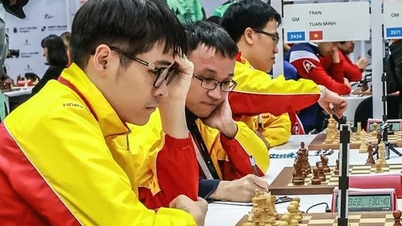




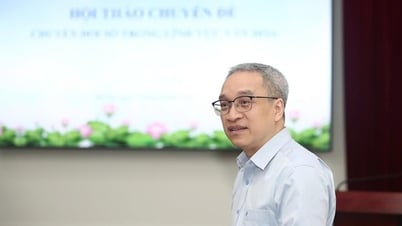
















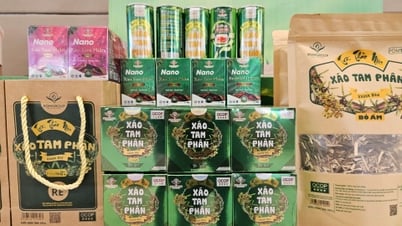

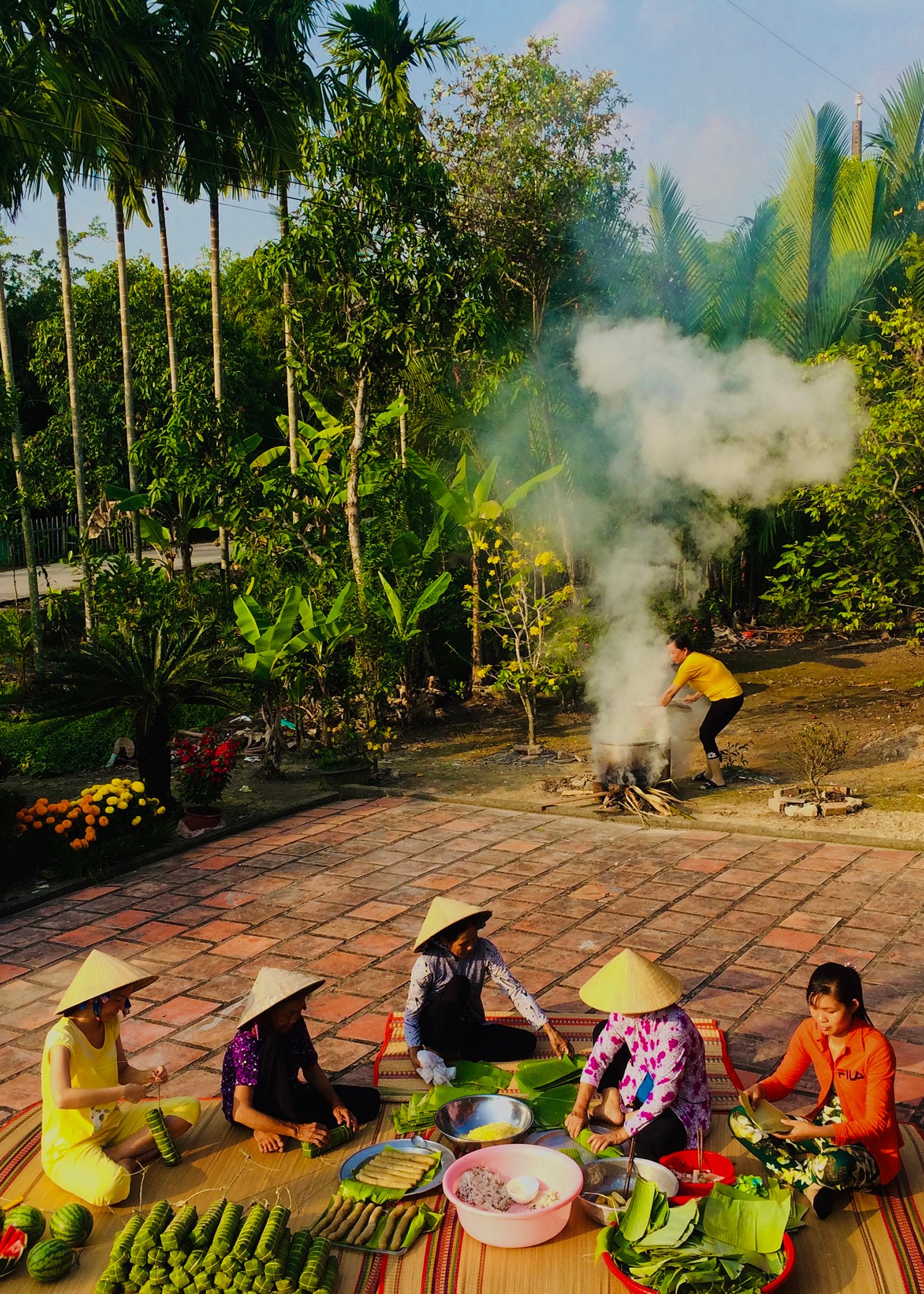



Comment (0)